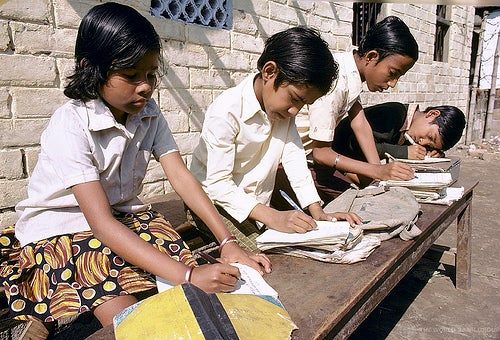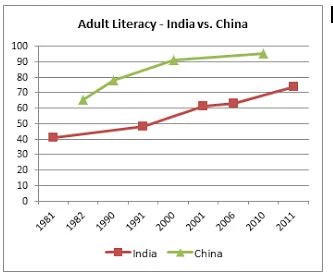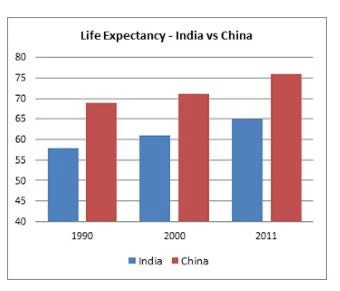
Investments in education could spur economic growth in India (Credit: World Bank)
I had the wonderful opportunity to listen to my former professor Amartya Sen at the World Bank who attempted to answer this very pertinent question in the minds of many today. The fundamental question at the core is why is it that while we rate democracy as the better form of government, it is single party ruled China that has been more successful at bringing more people out of poverty than democratic India? The implications for India are clear; investing in education and health for all its citizens is the best solution for long term growth.
Professor Sen argues that it is not the nature of government that is the main factor in China’s success but its investment in health and education that provided fuel to its explosive growth. India he said has under-invested in these key areas and hence its economic growth is poorly supported by quality human capital. Professor Sen was critical of the suggestion that countries could grow economically first and then invest in education later saying that it was the reverse that is true. He supported his claim bringing historical evidence of Japan’s rapid growth since the second decade of the 20st century being driven by its investment in health and education after the Meiji restoration on the 1868. More recently, similar investment by Korea and the South East Asian countries provided impetus to economic growth in these countries.
I wanted to see the evidence first hand and looked at the data.
In the case of India, while efforts have been made to improve literacy, its literacy rate in 2011 is 74% well below China’s at 95% (in 2010). In fact India’s literacy level today is even less than what China’s was in 1990 (figure-1).
The case of health is no different. In the case of life expectancy, once again India’s life expectancy in 2011 is below what it was in China’s in 1990 (fig-2). Today India’s life expectancy is 11 years below that of China.
These data supports Amartya Sen’s basic premise that India’s low literacy rates and poor health outcomes as compared to China’s may explain a big part of the disparity in development between the two countries.
You can see the entire talk on the World Bank website. The message for policy makers to India is clear. There are no short cuts to development and that one cannot grow without strengthening the capabilities of each and every citizen how-so-ever poor they may be or where ever they may live however remote. Economic growth needs strong foundations which India currently lacks.
Interestingly, another of Harvard’s economists Dani Rodrik has a different take on this issue he has explained on his blog. He says that governments could bypass the slower route to economic growth of investing in fundamental factors such as building institutions and investing in human capital. He argues that governments who took the route of structural transformation (where investment in manufacturing was predominant) could grow much faster in a shorter span. But that is a discussion for another day.




Join the Conversation